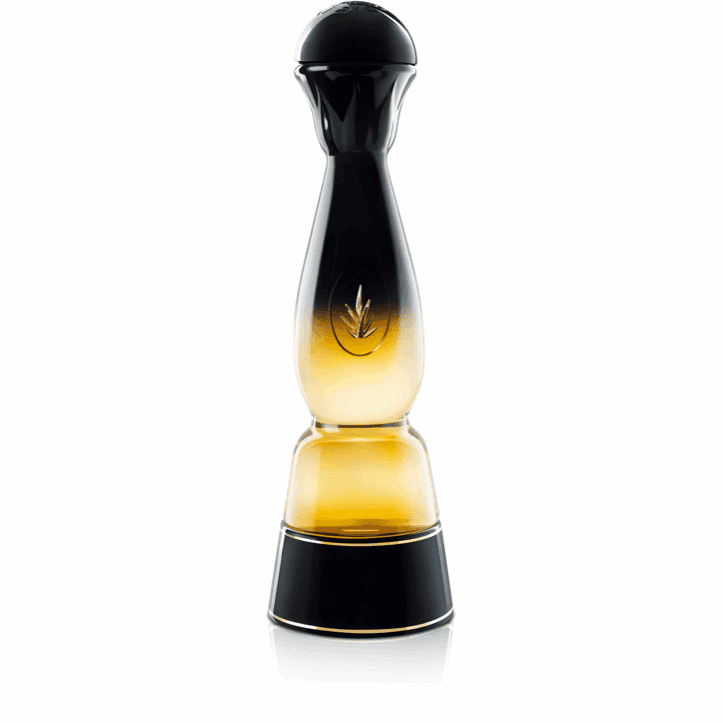
Clase Azul Gold Edition
Ideal for collectors, Clase Azul Gold is an exclusive, limited edition collection of unique art and tequila. This bottle masterfully features a combination of glass and ceramic, something Clase Azul has been working on for years.
With only 6000 pieces produced, "The Gold Collection" boasts a stunning hand-crafted and hand-painted base, a true depiction of Mexico's culturally exquisite artistry!
The different colors of the bottle symbolize the mix of tequila inside- a rare blend of Clase Azul Plata - with clear and crisp notes - and a very special expression of Clase Azul Ultra Anejo aged for 8 years! This particular edition of Ultra Anejo offers rich, dark, and complex notes as a result of the mixed aging process - a combination of reclaimed bourbon barrels and reclaimed Pedro Ximenez sherry casks. This blend of tequilas and aging creates a surprisingly smooth taste that satisfies even the most discerning palate.
ABOUT CLASE AZUL
Clase Azul is produced at the Productos Finos de Agave at Nom 1416, situated in the Jesus Maria region of Arandas in Los Altos Highlands region of Mexico. Clase Azul is a premium 100% authentic from the tequila crafted in a small town named Santa Maria Canchesdá. Over one hundred Mexican artisans go to work meticulously handcrafting each bottle.
Clase Azul tequilas are made from 100% from organic Tequilana Weber Blue Agaves. Chosen from approximately 200 breeds of agave, this particular species is the only one that produces tequila. Once the agave is harvested, Clase Azul cooks them in old-fashioned brick ovens, a process which takes 72 hours.
The cooked piñas are then crushed, after which a special brand of yeast is added. This liquid is allowed to ferment before the resultant spirit is meticulously twice-distilled with careful attention ensuring the highest quality spirit. This ultra-premium line of tequilas comes from the region of Jalisco, which imparts a unique flavor profile to the tequila. This bright reposado is silky smooth with a rich body and woody, fruity aromas and nuanced flavors of cooked agave, wood, vanilla, and caramel.
Clase Azul loosely translates as "blue class," and if you've ever sipped their fine tequilas, you'll know that this is an apt moniker. The company is based in picturesque Santa Maria Canchesda and uses only the finest organically-grown blue agave. After harvesting, the agave is cooked in old-school brick ovens for three entire days before it's double-distilled to perfection.
One of the best things about Clase Azul is that your experience never ends. Once you've finished every last delightful drop, the bottle itself can (and should) be kept forever. Each gorgeous bottle is made by hand and absolutely unique. Clase Azul employs about 100 artists whose sole job is to create these amazing bottles. Smoky and complex mezcal, crystal-clear plata and celebration-worthy.Clase Azul can all grace you with the tequila adventure of a lifetime.

Explore a World of Spirits and Liquor through our Comprehensive FAQ Section.
Discover a World of Spirits and Liquor in our Helpful FAQ Section.
Types of Spirits
- Whiskey: Made from fermented grain mash and aged in wooden casks.
- Vodka: Typically distilled from grains or potatoes and known for its clear, neutral flavor.
- Rum: Produced from sugarcane byproducts like molasses or sugarcane juice.
- Tequila: Made from the blue agave plant, primarily in the area surrounding Tequila, Mexico.
- Gin: Distilled with botanicals, primarily juniper berries, giving it a distinctive flavor.
Production Process
- Fermentation: The process where yeast converts sugars into alcohol.
- Distillation: Separating alcohol from the fermented mixture to increase its concentration.
- Aging: Storing spirits in barrels to develop flavors over time.
Tasting and Pairing
- Tasting Notes: Learn to identify different aromas, flavors, and textures.
- Food Pairings: Discover which spirits complement various dishes, enhancing the dining experience.
Cocktails and Mixology
- Classic Cocktails: Recipes and techniques for making popular drinks like the Old Fashioned, Martini, and Mojito.
- Mixology Tips: How to balance flavors and create your own cocktail recipes.
History and Culture
Origins: The historical background of different spirits.
Cultural Significance: How spirits are enjoyed and celebrated around the world.

